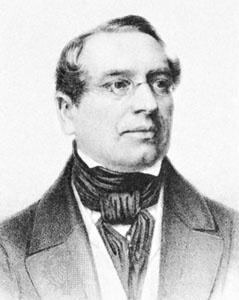Rodbertus, Johann Karl
German economist
born August 12, 1805, Greifswald, Swedish Pomerania 【now in Germany】
died December 6, 1875, Jagetzow, Prussia 【now in Germany】
 economist who, because of his conservative interpretation of social reform, was instrumental in shaping the Prussian (Prussia) government's regulation of its economy.
economist who, because of his conservative interpretation of social reform, was instrumental in shaping the Prussian (Prussia) government's regulation of its economy.Rodbertus was educated in law at Prussian universities. In 1836 he acquired the landed estate of Jagetzow in Pomerania. He advocated governmental regulation of wages (wage and salary) so that they might rise in proportion to increases in national productivity. Unlike Thomas Malthus (Malthus, Thomas Robert) and David Ricardo (Ricardo, David), who argued that wages rise naturally with an increase in the standard of living, Rodbertus insisted that wage earners, when left to their own devices, are incapable of earning more than subsistence-level incomes.
Rodbertus believed this occurred because any increase in national productivity would benefit the property owners—not the wage earners. Since property owners constituted a minority of the population, crises of underconsumption and retarded production could occur. Although this doctrine paralleled some of the fundamentals of socialism, Rodbertus did not dismiss the concept of capitalism itself. On the contrary, by recommending that the government legislate the conditions of wage payments, he furnished a conservative basis for state intervention and thus won support for social legislation from groups who ordinarily opposed socialist policies and precepts.
- upanayana
- Upanishad
- upasaka
- upasampada
- UPC
- Updike, Daniel Berkeley
- Updike, John
- updraft and downdraft
- upekṣa
- Upemba National Park
- Upernavik
- Upfield, Arthur William
- upholstery
- Upjohn, Richard
- uplift
- Upolu
- uposatha
- Uppdal, Kristofer Oliver
- Upper Burma
- Upper Canada
- Upper Egypt
- Upper Hutt
- Upper Yosemite Fall
- Uppingham
- Uppland